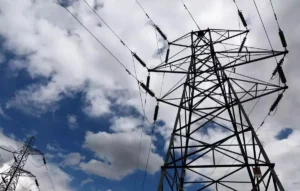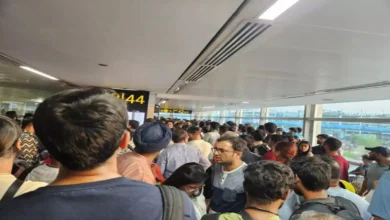State to Invest ₹1.4 Lakh Crore to Meet Power Demand
Maharashtra Plans ₹1.4 Lakh Crore Investment to Support Rising Power Demand of 45,000 MW by 2035, Including Distribution and Transmission Upgrades


Maharashtra to Spend ₹1.4 Lakh Crore to Upgrade Power Infrastructure as Demand Anticipated to Cross 45,000 MW by 2035
MUMBAI: Maharashtra’s electricity demand is expected to grow drastically to 45,000 MW by 2035, and the state government has drawn up a comprehensive plan for strengthening its electricity infrastructure to meet this. Chief Minister Devendra Fadnavis revealed the plans after attending a conference of western states‘ power ministers in Mumbai on Tuesday.
The current power consumption in Maharashtra is around 30,659 MW. To address future requirements, the government has proposed an extensive investment plan, which involves a ₹65,000-crore proposal to upgrade the distribution system and another ₹75,000 crore targeted at transmission sector upgradation.
Fadnavis highlighted the government’s initiatives to provide sufficient electricity supply to cater to increasing demand, particularly during peak summer seasons. He said, “Agreements have been signed to provide 2,683 MW of power from thermal power plants, 1,170 MW from hydropower, and 35,170 MW from renewable energy.” The government has also proposed to install 4,574 MW of storage capacity to meet non-solar peak-time demands.
The Chief Minister also urged the central government to support Maharashtra’s renewable energy projects, especially in reducing the cost of solar power and ensuring grid stability. He emphasized the need to implement the Ujwal DISCOM Assurance Yojana (UDAY) 2.0 scheme in the state, which is intended to enhance the financial health and operational efficiency of power distribution companies (DISCOMs) so that there will be a reliable and sustainable supply of electricity.
Union Power Minister Manohar Lal Khattar, who participated in the conference, called for Maharashtra and other participating states to make smart meter projects and infrastructure development a priority to improve distribution efficiency. He highlighted the implementation of prepaid smart meters, particularly in government buildings, as part of the Reforms-based, Results-linked Distribution Sector Scheme (RDSS).
Apart from Maharashtra, the conference was also graced by other important stakeholders such as Shripad Naik, Union Minister of State for Power and New & Renewable Energy, and power ministers from Goa, Gujarat, and Madhya Pradesh. The deliberations highlighted the need for collective efforts to develop the power sector and address the increasing energy needs of the region.
With Maharashtra gearing up for this major increase in power infrastructure, the emphasis is on clean, efficient, and reliable power supply to aid its developmental aspirations over the next few decades.






